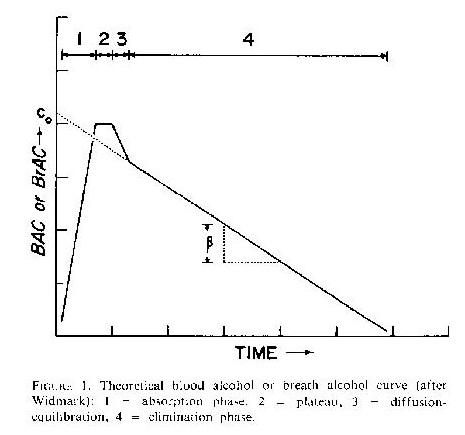Milwaukee230 West Wells Street - Suite 706 Tel - 414.207.4426 |
Madison403 Venture Court - Suite 2 Tel - 608.320.6710 |
Defenses to Wisconsin OWI Charges
 (1.) No Reasonable Suspicion to Stop: Argue that the police officer who stopped you did not have a reasonable suspicion (specific and articulable facts together with reasonable inferences that would lead a reasonably prudent office to believe criminal activity was afoot). If this was a fact, and argued effectively, evidence relating to your Wisconsin DUI Arrest would be suppressed and the prosecution's case would be non existent leading a dismissal. This is generally proved with a motion to suppress evidence prior to trial. An example of this might be when a driver fails to signal a turn and no other vehicle is affected including any officer in the area. See Wis. Stat. 346.34 (1) (b).
(1.) No Reasonable Suspicion to Stop: Argue that the police officer who stopped you did not have a reasonable suspicion (specific and articulable facts together with reasonable inferences that would lead a reasonably prudent office to believe criminal activity was afoot). If this was a fact, and argued effectively, evidence relating to your Wisconsin DUI Arrest would be suppressed and the prosecution's case would be non existent leading a dismissal. This is generally proved with a motion to suppress evidence prior to trial. An example of this might be when a driver fails to signal a turn and no other vehicle is affected including any officer in the area. See Wis. Stat. 346.34 (1) (b).
•(2.) PBT Should not be Given any Weight : Argue that the police officer who stopped you failed to follow the requisite rules/procedure regarding a preliminary breath test /PBT/roadside breathalyzer test. Or argue that the PBT had problems- (in a previous case Attorney Griessmeyer was alerted to the fact that the PBT had overheated and was taken out of service just days before the arrest of the driver). This may allow the Wisconsin DUI Lawyer to argue to the District Attorney or City Attorney that the numerical result of the preliminary breath test/ PBT/ roadside breathalyzer should not be considered. Although the result of the PBT is not admissible in an action except to show probable cause or prove that a test was required,the D.A. will still know what the result was and if your lawyer can persuade the D.A. that there was something wrong with the PBT or result, it could help your case. *Note, a recent federal case in Wisconsin overturned a Wisconsin state trial court judge's ruling after the state trial judge did not allow the defendant's expert to use pbt results during the trial. It remains unseen how this will affect Wisconsin DUI cases. PBT results could help or hurt either side depending on the number. In California, prosecutors argue that the PBT is admissible to show reliability of the second test when a defendant challenges the blood or breath test. This way they can argue to the jury that there are two separate tests showing the defendant was over .08. Of course they only argue this when the PBT is over .08. When the PBT or PAS is under 0.08 the prosecution tries to keep it out. 343.303 Preliminary breath screening test. If a law enforcement officer has probable cause to believe that the person is violating or has violated s. 346.63 (1) or (2m) or a local ordinance in conformity therewith, or s. 346.63 (2) or (6) or 940.25 or s. 940.09 where the offense involved the use of a vehicle, or if the officer detects any presence of alcohol, a controlled substance, controlled substance analog or other drug, or a combination thereof, on a person driving or operating or on duty time with respect to a commercial motor vehicle or has reason to believe that the person is violating or has violated s. 346.63 (7) or a local ordinance in conformity therewith, the officer, prior to an arrest, may request the person to provide a sample of his or her breath for a preliminary breath screening test using a device approved by the department for this purpose. The result of this preliminary breath screening test may be used by the law enforcement officer for the purpose of deciding whether or not the person shall be arrested for a violation of s. 346.63 (1), (2m), (5) or (7) or a local ordinance in conformity therewith, or s. 346.63 (2) or (6), 940.09 (1) or 940.25 and whether or not to require or request chemical tests as authorized under s. 343.305 (3). The result of the preliminary breath screening test shall not be admissible in any action or proceeding except to show probable cause for an arrest, if the arrest is challenged, or to prove that a chemical test was properly required or requested of a person under s. 343.305 (3). Following the screening test, additional tests may be required or requested of the driver under s. 343.305 (3). The general penalty provision under s. 939.61 (1) does not apply to a refusal to take a preliminary breath screening test. (3.) No Probable Cause to Arrest: Argue that there was insufficient evidence to arrest the driver based on the facts and circumstances. This may include arguments that there was no indicia of intoxication/ under the influence, the driver did not fail any field sobriety tests (FSTS) etc. This is generally a very tough argument to make prior to a jury trial because courts usually tend to rely on numerical results of chemical tests regardless of the driver's behavior. (4.) Problems with the Breath, Blood or Urine Test. There are numerous arguments regarding chemical tests that can be made by an effective Wisconsin OWI attorney. Some of these include: Breathalyzer- arguing that the breath test machine was reading high (based upon records received by the attorney) no 20 minute observation, presence of mouth alcohol, medical conditions, only one test was given instead of two, Blood Alcohol Test- problems with chain of custody of blood sample, veinipuncture vs. arterial pull, too much time passed between driving and the blood pull for an accurate result ***Note, blood samples can be retested after a DWI charge by an expert your Wisconsin DWI lawyer hires. In low blood alcohol cases this may make a dramatic difference (example .08 by police and .07 on retest). (5.) Rising Blood Alcohol Defense: A common argument made by Wisconsin DUI Lawyers is that the driver's blood alcohol level was lower at the time of driving than what was recorded when the police tested the driver's blood or breath. (example .06 when driving but .09 at time of test). If your case goes to trial, a toxicologist may testify using the Widmark formula regarding your blood alcohol concentration and the rate of absorption. This is a complicated procedure but to simplify goes like this- the Widmark formula determines how much effect each beer/drink has on you personally depending on weight, food, time of last meal etc. For example, a toxicologist may determine that you personally rise at a level of .029 per drink. Therefore if you had three drinks shortly before driving, you may have been at a .06 about a half hour later (when you were stopped behind the wheel) but 1 hour later when you took the breathalyzer at the police station, you registered .09. Note, this cuts both ways. If you tell the police you stopped drinking 4 hours before driving there is no argument that you were rising. Moreover, the opposite may also be true (declining blood alcohol). The prosecution often argues retrograde extrapolation. To put it simply, the prosecution will argue that your blood alcohol content at the time of driving was actually higher than what was recorded during your blood test at the hospital or breath test at the police station. For example, let's say you gave a blood test one hour after driving and it was a .14. The prosecution will bring in their expert to testify and extrapolate backward to come to the conclusion that you were really peaked out at the time of driving at a .17 and that during the hour it took to transport you to the hospital/police station, your b.a.c. went down .03. Wisconsin Breath Test Requirement: See Wisconsin Administrative Code Trans 311.06: Procedures for quantitative breath analysis shall include the following controls in conjunction with the testing of each subject: (a) Observation by a law officer or combination of law enforcement persons, of the test subject for a minimum of 20 minutes prior to the collection of the breath specimen, during which time the test subject did not ingest alcohol, regurgitate, vomit, or smoke.
